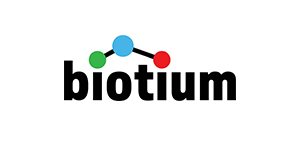CD53(63-5A3), 1mg/mL
CD53(63-5A3), 1mg/mL
SKU
BTMBNUM0356-50
Packaging Unit
50 µl
Manufacturer
Biotium
Availability:
loading...
Price is loading...
Description: Recognizes a protein of 33-55 kDa, identified as CD53 (Workshop V; Code CD53.1). CD53 is expressed on monocytes, and macrophages, granulocytes, dendritic cells, osteoblasts and osteoclasts, NK cells, and on T- and B-cells from every stage of differentiation but is absent from platelets, erythrocytes, and non-haemopoietic cells. CD53 is a member of a family of tetraspan transmembrane proteins, including CD9, CD37, CD63, CD81, and CD82. It associates with integrins, MHC class II molecules, and a tyrosine phosphatase and plays a role in cellular activation as part of a signal transduction complex involving other membrane glycoproteins. Defects of CD53 expression on neutrophils appear to be related with recurrent infectious diseases. Cross-linking CD53 using CD53 antibodies led to cytoplasmic calcium fluxes in B cells, monocytes, and granulocytes and activation of the monocyte oxidative burst.Primary antibodies are available purified, or with a selection of fluorescent CF® Dyes and other labels. CF® Dyes offer exceptional brightness and photostability. Note: Conjugates of blue fluorescent dyes like CF®405S and CF®405M are not recommended for detecting low abundance targets, because blue dyes have lower fluorescence and can give higher non-specific background than other dye colors.
Product origin: Animal - Mus musculus (mouse)
Conjugate: Purified, BSA-free
Concentration: 1 mg/mL
Storage buffer: PBS, no BSA, no azide
Clone: 63-5A3
Immunogen: Human Sezary cells
Antibody Reactivity: CD53
References: Note: References for this clone sold by other suppliers may be listed for expected applications.
Entrez Gene ID: 963
Expected AB Applications: Flow (surface)/Functional studies (published for clone)/IP (published for clone)
Z-Antibody Applications: Flow, surface/Functional studies (published)/IP (published)
Antibody Application Notes: Higher concentration may be required for direct detection using primary antibody conjugates than for indirect detection with secondary antibody/Immunofluorescence: 0.5-1 ug/mL/Flow Cytometry 0.5-1 ug/million cells/0.1 mL/Optimal dilution for a specific application should be determined by user
Product origin: Animal - Mus musculus (mouse)
Conjugate: Purified, BSA-free
Concentration: 1 mg/mL
Storage buffer: PBS, no BSA, no azide
Clone: 63-5A3
Immunogen: Human Sezary cells
Antibody Reactivity: CD53
References: Note: References for this clone sold by other suppliers may be listed for expected applications.
- Eur J Biochem (2002) 269, 1012-1021. (functional studies)
- J Immunol (1990) 145:4322-4325. (IP)
- Knapp, W. et al., Leucocyte typing IV, p 534 and p 541. Oxford Univ. Press. 1989.
- Schlossman SF et al. eds. Leukocyte Typing V, p556-559, Oxford University Press, Oxford, 1995.
- Kishimoto T et al. eds. Leukocyte Typing VI, Garland Publishing, New York, 1997.
Entrez Gene ID: 963
Expected AB Applications: Flow (surface)/Functional studies (published for clone)/IP (published for clone)
Z-Antibody Applications: Flow, surface/Functional studies (published)/IP (published)
Antibody Application Notes: Higher concentration may be required for direct detection using primary antibody conjugates than for indirect detection with secondary antibody/Immunofluorescence: 0.5-1 ug/mL/Flow Cytometry 0.5-1 ug/million cells/0.1 mL/Optimal dilution for a specific application should be determined by user
| SKU | BTMBNUM0356-50 |
|---|---|
| Manufacturer | Biotium |
| Manufacturer SKU | BNUM0356-50 |
| Package Unit | 50 µl |
| Quantity Unit | STK |
| Reactivity | Human |
| Clonality | Monoclonal |
| Application | Immunoprecipitation, Flow Cytometry, Functional Studies |
| Isotype | IgG2b kappa |
| Host | Mouse |
| Conjugate | Unconjugated |
| Product information (PDF) | Download |
| MSDS (PDF) | Download |

 Deutsch
Deutsch







